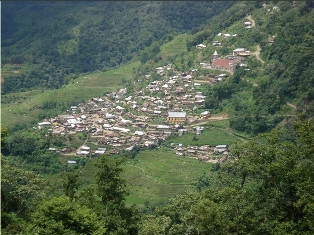About Krishi Vigyan Kendra, Phek

Thrust Area Identified by KVK for the Phek
-
Introduction of quality livestock germplasm.
-
Vaccination and health coverage measures of pig and poultry.
-
Deworming of mithun at regular intervals and feeding of compounded mineral mixture instead of common salt to mithun
-
Introduction of high yielding varieties of cereals, pulses and oilseeds.
-
Soil and seed treatment.
-
Control of weeds.
-
Introduction of high yielding varieties of fruits and vegetables.
-
Improved production technology of fruits and vegetables.
-
Introduction of biofertilizers e.g. Rhizobium, Azotobacter, Azospirillum, Blue green algae, Azolla for nutrient management.
-
Use of suitable plant protection measures against pest and diseases of crops.
-
Proper design of terrace, water harvesting and designing diversions for irrigation and drainage for proper management of watershed area.
-
Introduction of improved storage structure for cereals, pulses and finished products.
-
Development of capabilities of rural youth and women in the field of fruits and vegetables processing and value addition.
-
Adequate and hygienic shelter/housing.
-
Introduction of common carps and other exotic carps in paddy cum fish farming and fish ponds.
-
Strengthening integrated farming system approach with advanced scientific inputs.
Focus areas of the KVK Phek
-
To identify the important problems of that area as per the need of the farmers and prioritization of the identified problems as per their importance.
-
Planning & conducting on farm trial to assess the technologies in farmerís situation in the district and refine it, if required.
-
Demonstrating new and improved technologies to the farmers as well as to the extension agencies directly in the farmerís field with their active participation for promotion and large scale adoption.
-
Planning & conducting production oriented need based long and shorts duration on campus and off campus training.
-
Providing training and information about latest developments in agricultural technologies to extension personnel to orient and update their knowledge.
-
Developing and organizing non-formal education programs by way of field days, farm visits, farmers fair, radio talk, film shows etc.
-
Organizing Farm Science Clubs in Rural Schools and Villages to induce liking and interest for Agricultural & Allied sciences in younger generation.
-
Developing and promoting small village organizations like Self Help Groups (SHGs), Farmer Interest Groups (FIGs), Kisan Clubs etc.
-
Developing and maintaining farms and Demonstration Units on scientific lines to facilitate work experience to the trainees and also to put a show case of latest technical know how.
-
Imparting some basic education to rural illiterates and school drop-outs in order to make them not only good farmers but also better citizens.
-
Providing added training facilities in the areas of rural home science and nutritional education for community.
-
Collecting feed back from the farmers and extension agencies and communicating these massages to research scientists for modification of technology.